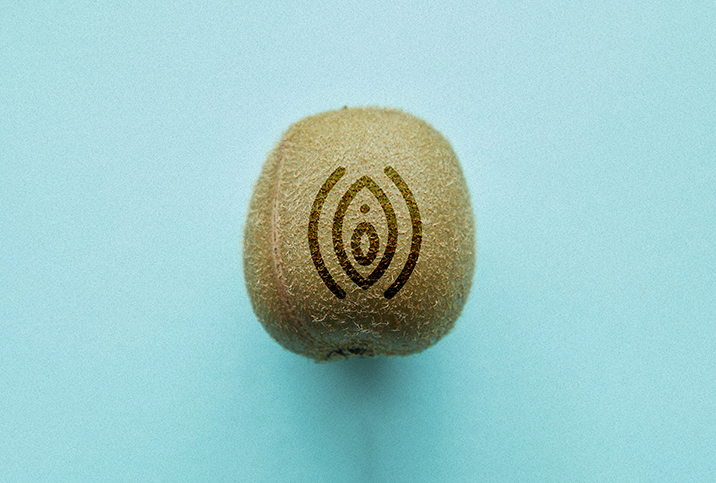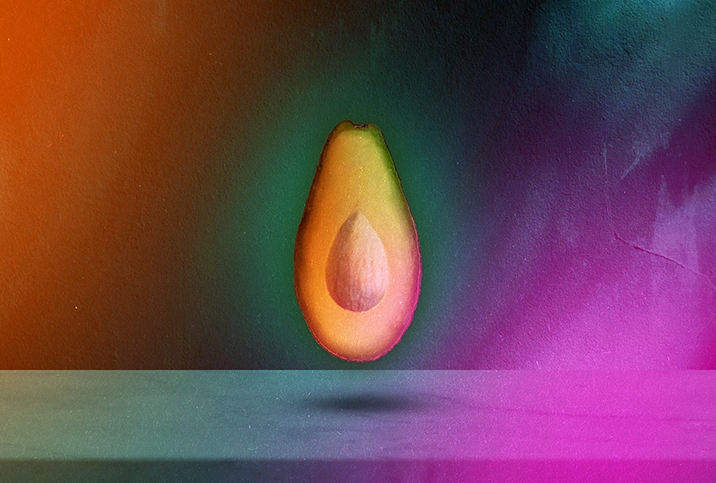Help! My Vulva Itches!

Itching, burning, swelling, blisters. None of these are words that we'd ever want to associate with our vulvas (or anywhere on our bodies, really). But they're all symptoms of a common vulval inflammation that can cause irritation and major discomfort: vulvitis.
Before you panic the next time you experience a nagging itch around the clitoris or a subtle burning sensation in your labia, vulvitis is not a disease. But an inflamed vulva can be seriously irritating, uncomfortable, painful and a symptom of a wider cause to which you should be paying close attention.
Plus, vulvitis often might not be recognized for what it is. Vaginitis is more commonly known than vulvitis, and while the former is also something to take seriously, it's not to be confused with vulvitis. (We know about the importance of distinguishing clearly between the vagina and the vulva; here's looking at you, Gwyneth Paltrow.)
And yet vulvitis is exceptionally common.
"Any woman of any age can be affected by vulvitis," said Kecia Gaither, M.D., director of perinatal services at NYC Health + Hospitals/Lincoln in the Bronx, New York City. "Young girls or postmenopausal women may be more susceptible due to lower estrogen levels, leading to thinner, drier vulva tissues."
With all this in mind, it's about time to get better acquainted with the causes of—and treatments for—an inflammation of the vulva that creates way more unpleasantness than is ever strictly necessary.
What symptoms should you look for?
By this point, you probably get the idea that itching, burning and swelling are key symptoms of vulvitis, but this isn't an exhaustive list. Gaither mentioned redness and fissures as other symptoms, together with scaly white patches on the vulva.
If you've ever experienced pain during sex, or dyspareunia, that could be something to watch out for, too.
"You can also experience discomfort with penetrative sex or burning with urination as the urine touches the irritated skin," explained Sarah Yamaguchi, M.D., a board-certified gynecologist at DTLA Gynecology in Los Angeles.
Of course, a lot of these symptoms—itching, in particular—can be mistaken for vaginal yeast infections.
"Vulvitis can be confused with thrush, though at the same time, thrush or yeast can cause vulvitis," said Betsy Greenleaf, D.O., a Howell, New Jersey-based physician, owner of the Pelvic Health Institute at Greenleaf Health and Wellness and CEO of the Pelvic Floor Store. "The key is that not everything that itches or burns is yeast."
And speaking of causes...
What causes vulvitis?
"It's incredible how many different causes can lead to inflammation in the genitals," Greenleaf said.
She's not wrong. The list of causes behind vulvitis is many and varied, and most importantly, nonexhaustive, but that means there's plenty of scope to step back and assess exactly what could be causing that persistent vulvar irritation.
"Some causes are easy to treat, such as sensitivities to chemicals in laundry detergent, soaps, personal products or bleached products such as pads, tampons or toilet paper," Greenleaf explained. "Other causes include infections, such as bacteria, yeast or parasites."
She also cited pelvic floor muscle spasms, which decrease blood flow to the skin and cause irritation, as another possible cause.
Yamaguchi echoed the possibility of infection as a cause, describing yeast or contact irritation from using a latex condom if you have a latex allergy, for example, as likely culprits. Gaither, too, posited infection as a leading cause of vulvitis, suggesting that herpes, scabies or crabs could be to blame.
Gaither also pointed to the likelihood of an allergic reaction as a potential cause.
"Allergic reactions are common and can be caused by vaginal sprays, douches, lubricants, bubble baths [or] sanitary napkins," she said, adding that injury, such as a straddle injury from bike or horseback riding, could be another possible instigator.
How is vulvitis treated?
Good news: Plenty of ways are available to treat this uncomfortable inflammation of the vulva. Even better news: You can try some at-home remedies as a first line of defense.
Both Yamaguchi and Greenleaf suggested soaking in a warm bath with Epsom salts, and Greenleaf also advised that ice packs could be a useful way to treat the condition in the comfort of your home.
Of course, at-home remedies may not always work. If you've sat in the bathtub until your skin has pruned and frozen your vulva with ice pack after ice pack to no avail, it's time to seek further treatment options. You should assess the cause first, as Yamaguchi emphasized.
"Using steroid cream on the area will help calm the irritation, but if there is an underlying infection, it may just mask the symptoms and not actually cure the cause," Yamaguchi said. "If you want to cure it, you will need to treat the cause. If it's yeast, using an over-the-counter yeast cream can help, and if it's contact irritation, then removing the irritant, such as new detergents or lubricants, [is a good idea]."
When should you seek medical advice?
Ultimately, you should always see a healthcare professional if you're concerned.
"Any of these symptoms warrants a trip to the physician, to be evaluated for the [cause]," Gaither said, adding that a biopsy may also be required if there is a suspicion of vulvar cancer.
Vulvar cancer is unlikely to be an underlying cause of vulvitis symptoms, but it's always best to be cautious and seek medical advice if you're unsure.
Plus, nobody should live with pain or discomfort unnecessarily.
"You should see a specialist if over-the-counter treatments and simple treatments that your general gynecologist or doctor has prescribed do not work," Greenleaf said. "It's crucial to get to a specialist early, because pain going beyond three months becomes more challenging to reverse."
How can vulvitis be prevented?
Of course, there are no fail-safe ways to prevent the onset of vulvitis, but there are ways in which you can minimize the possibility of getting uncomfortably inflamed down there.
"Those at greatest risk of getting vulvitis are people who eat processed foods or diets high in sugar, wear nonbreathable fabrics, especially in underwear, and use fragranced soaps and detergents," Greenleaf said.
"The best way to prevent vulvitis is by washing only with soap and water, wash clothes in dye-free, detergent-free laundry soap, [and] cut back on sugar in your diet, which increases the risk of inflammation and yeast infections," she added. "Wear loose-fitting clothes, especially at night—let things breathe—and see a doctor early."
Yamaguchi confirmed that in general, keeping the area clean and dry tends to help, and it's best to avoid thongs and friction.
Above all, you should see a doctor whenever anything feels out of the ordinary. But take comfort in the fact that vulvitis is common, and it's about time we started recognizing it as the wholly relatable—albeit unpleasant—inflammation of the vulva that it is.


















